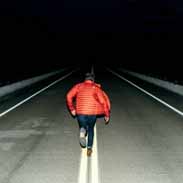Ch. 10 AP World History – Flashcards
Unlock all answers in this set
Unlock answersquestion
Hanseatic League
answer
An organization of cities in northern Germany and southern Scandinavia for the purpose of establishing a commercial alliance.
question
Fuedalism
answer
a political system in which nobles are granted the use of lands that legally belong to the king, in exchange for thier loyalty, military service and protection of of the people who live on the land
question
lay investiture
answer
the practice by which secular rulers both chose nominees to church offices and gave them the symbols of their office
question
Franks
answer
Germanic people who lived and held power in Gaul. Their leader was Clovis and he would later bring Christianity to the region. By 511 the Franks had united into one kingdom and they controlled the largest and strongest parts of Europe.
question
Thomas Aquinas
answer
Italian theologian and Doctor of the Church who is remembered for his attempt to reconcile faith and reason in a comprehensive theology
question
Carolingian
answer
of or relating to the Frankish dynasty founded by Charlemagne's father
question
Clovis
answer
King of Franks; conquered Gaul; earned support of Gaul and Church of Rome by converting; Ruled lands in Frankish custom but kept Roman legacy
question
Holy Roman Empire
answer
Loose federation of mostly German states and principalities, headed by an emperor elected by the princes. It lasted from 962 to 1806
question
Charlemagne
answer
King of the Franks emperor (r. 800-814). Through a series of military conquests he established the Carolingian Empire, which encompassed all of Gaul and parts of Germany and Italy. Illiterate, though he started an intellectual revival. Was crowned Holy Roman Emperor by Pope(which would lead to problems for other rulers).
question
vassals
answer
members of the military elite who received land or a benefice from a lord in return for military service and loyalty
question
moldboard
answer
Heavy plow introduced in northern Europe during the Middle Ages; permitted deeper cultivation of heavier soils; a technological innovation of the medieval agricultural system.
question
Charles Martel
answer
Frankish commander in the battle of Tours(Also known as Poiters). He defeated the Muslims in the Battle of Tours, allowing Christianity to survive throughout the Dark Ages. He in a way started Feudalism by giving land to his knights that served for him.
question
Hundreds Year War
answer
(1337-1453) Large war between France and England that was fueled by territorial disagreements and started when Edward III declared himself king of France. In the end, it weakened both countries for some time France WINS (Wow France Wins LOL).
question
Reconquista
answer
The effort by Christian leaders to drive the Muslims out of Spain, lasting from the 1100s until 1492. Ended with Ferdinand and Isabella who unified it into a powerful nation state. Ended with the fall of the Sultanate of Grenada and coincided with the expulsion of the Jews from Spain.
question
Manoralism
answer
System that described economic and political relations between landlords and their peasant laborers during the MIddle Ages.Large fields for agriculture, and serfs to work the land. The land and inhabitants were called a manor and both belonged to the lord.
question
Scholasticism
answer
A philosophical and theological system, associated with Thomas Aquinas, devised to reconcile Aristotelian philosophy and Roman Catholic theology in the thirteenth century.
question
Middle Ages
answer
The period between the fall of the Roman Empire in the west (470) and the beginning of the European Renaissance in the 1400s. This period is also known as "Medieval."
question
Pope Gregory 7
answer
The pope from 1073 to 1085; excommunicated Henry 4 over the issue of lay investiture and then forgave him, and later deposed by Henry, wanted to institute reforms, limit secular influence on the church
question
Guilds
answer
an association of persons of the same trade or pursuits, formed to protect mutual interests and maintain standards
question
Low Countries
answer
the lowland region of western Europe on the North Sea: Belgium and Luxembourg and the Netherlands
question
three field system
answer
A rotational system for agriculture in which one field grows grain, one grows legumes, and one lies fallow. It gradually replaced two-field system in medieval Europe. (p. 396)



